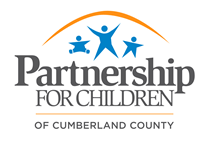The Family Focus Guide helps families and individuals in and around the Fayetteville area find resources in our community.
If you have a service-focused organization that serves families in the Fayetteville, Cumberland County area and would like to be listed, please email us at [email protected].
Established in 1964, the Action Pathways, formerlly Cumberland Community Action Program, Inc. (CCAP), strives to develop and operate projects that promote the economic and social well-being of individuals, children, families, and communities. CCAP has a long history of providing sustainable programs to the surrounding community with a visible impact throughout southeastern North Carolina, providing life-changing assistance to hundreds of thousands of individuals and families on an annual basis. CCAP is the parent organization for the Second Harvest Food Bank of Southeast North Carolina (SHFB SE NC); the Consumer Credit Counseling Services (CCCS); the Comprehensive Housing and Weatherization Programs; Self-Sufficiency Programs (ASPIRE); and Head Start. CCAP is accredited by the Council on Accreditation. For more information CCAP programs and services, visit www.ccap-inc.org or call (910) 485-6131.
Active Parenting™ 4th Edition, a community-based program, is a revision of the Active Parenting Now program and is designed to develop and strengthen parenting skills and improve parent-child relationships and child functioning.
Adolescent Parenting Program (APP) provides support for parenting teens up to age 17. The program works to help parenting teens remain in school, graduate from high school, and delay a second pregnancy.
The Conscious Discipline Parent Education Curriculum is a comprehensive guide for engaging families as partners in building healthy, brain-smart homes that support children’s growth and development
Provides and supports prevention/early intervention to at-risk children and their families in Cumberland County through community-based collaboration. Provides evaluation, program development, quality improvement, substance abuse treatment, youth gang prevention/intervention, youth leadership development, prevention training/management services and community consulting.
Provides various clinics including a Child Health Clinic for ages infant to 18 years old; Adult Health Clinic; WIC; Women's Preventive Health; Family Planning; Maternity Clinic; Dental Clinic. WIC and Immunizations have extended hours until 7pm on Tuesday. Care Coordination for Children is a voluntary program available to all children of Cumberland County, from birth to 5 years with special health care, developmental and social needs. Pregnancy Care Management is a voluntary program for high risk pregnant women in Cumberland County. Services provided at no cost to the participants.
Provides support and information to parents of children who are deaf or hard of hearing, deaf parents with hearing children and the professionals who serve these families, from birth to 21.
(800) 541-4327 (V/TTY) - in North Carolina only.
Provides education and training in personal and/or professional emergency response. Offers First Aid/CPR training, babysitters training for ages 11-15, Wilderness 1st Aid, and other classes to meet OSHA requirements.
Provides home visits, infant care, and parenting classes.
This group consists of parents, caregivers and professionals of children and adults with high functioning autism (HFA) and Asperger Syndrome. Meetings held every other month on the 1st Monday from 6:30pm - 8:00pm at the Partnership for Children Resource Center.
The Nurturing Parenting Programs are family-based programs that can be offered in a group setting, in a home-visiting setting, or as a combination of both group meetings and home visitation.[1] Components of the program include 1) developing empathy, facilitating parent-child bonding and attachment; 2) teaching parents appropriate expectations of children’s growth, particularly ways to promote children’s feelings of self-worth, trust, and security; 3) employing discipline that promotes the dignity of children and adults; 4) empowering adults and children to nurture themselves, others, and their environment; 5) promoting positive self-worth; and 6) helping all family members develop a meaningful level of selfawareness and acceptance. Parent education programs that are designed to prevent the development of poor parenting behaviors are short-term, approximately five to 18 sessions in length. Parenting intervention programs are designed to “intervene” to prevent escalation in the early stages of maltreatment. These are generally from 12 to 20 sessions. Parenting treatment programs are designed to “treat” abusive and neglectful parent-child or parent-teen dysfunctional interactions. These are generally 15 to 25 sessions.
The Period of PURPLE Crying program is the name given to the National Center on shaken Baby Syndrome's evidence-based SBS prevention program, which includes a full color 11-page booklet and a 10-minute DVD intended to be given to parents of new infants.
Scream Free® Marriage, a community-based program, is designed to enhance individual's and couples' emotional competency and improve their relationships.
ScreamFree® Parenting, a community-based program, is designed to help parents and caregivers learn how to respond rather than react to children's behaviors and, consequently, create peaceful, healthy relationships.
Provides SIDS prevention education to maternity clients - parents and general population upon request.
Peer education program, parent opportunities, and peer training.
Your Journey Together (YJT) is a strength-based curriculum designed to promote resilience including strengthening the protective factors of both children and adults, as well as creating environments that promote resilience.. YJT aligns with Center for the Study of Social Policy’s Strengthening Families Protective Factors Framework and with Substance Abuse and Mental Health Services Administration’s (SAMHSA) Six Key Principles of a Trauma-Informed Approach. The four modules of the YJT curriculum focuses on empowering parents to promote safe, trusting, and healing environments—all key elements of a trauma sensitive program. The first module explains what it means to be resilient and why it is important. The three remaining modules cover creating a positive environment, strengthening children’s protective factors, and improving the well-being of the adults providing care to children


